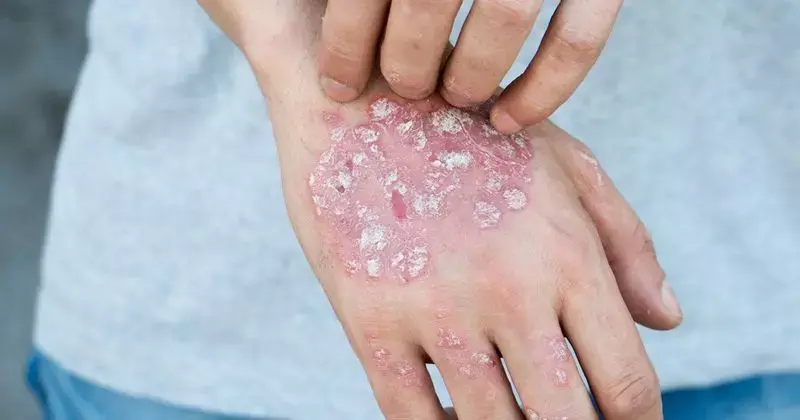- Home
- Medical news & Guidelines
- Anesthesiology
- Cardiology and CTVS
- Critical Care
- Dentistry
- Dermatology
- Diabetes and Endocrinology
- ENT
- Gastroenterology
- Medicine
- Nephrology
- Neurology
- Obstretics-Gynaecology
- Oncology
- Ophthalmology
- Orthopaedics
- Pediatrics-Neonatology
- Psychiatry
- Pulmonology
- Radiology
- Surgery
- Urology
- Laboratory Medicine
- Diet
- Nursing
- Paramedical
- Physiotherapy
- Health news
- Fact Check
- Bone Health Fact Check
- Brain Health Fact Check
- Cancer Related Fact Check
- Child Care Fact Check
- Dental and oral health fact check
- Diabetes and metabolic health fact check
- Diet and Nutrition Fact Check
- Eye and ENT Care Fact Check
- Fitness fact check
- Gut health fact check
- Heart health fact check
- Kidney health fact check
- Medical education fact check
- Men's health fact check
- Respiratory fact check
- Skin and hair care fact check
- Vaccine and Immunization fact check
- Women's health fact check
- AYUSH
- State News
- Andaman and Nicobar Islands
- Andhra Pradesh
- Arunachal Pradesh
- Assam
- Bihar
- Chandigarh
- Chattisgarh
- Dadra and Nagar Haveli
- Daman and Diu
- Delhi
- Goa
- Gujarat
- Haryana
- Himachal Pradesh
- Jammu & Kashmir
- Jharkhand
- Karnataka
- Kerala
- Ladakh
- Lakshadweep
- Madhya Pradesh
- Maharashtra
- Manipur
- Meghalaya
- Mizoram
- Nagaland
- Odisha
- Puducherry
- Punjab
- Rajasthan
- Sikkim
- Tamil Nadu
- Telangana
- Tripura
- Uttar Pradesh
- Uttrakhand
- West Bengal
- Medical Education
- Industry
Ultraprocessed Foods Linked to Active Psoriasis Risk, finds study

Recent findings from a new study have revealed that heavy ultraprocessed foods intakes, such as that by sodas and frozen pizzas, have been correlated to risk of active psoriasis. This study was conducted by Penso L. and colleagues which was then published in JAMA Dermatology.
Psoriasis, a chronic autoimmune disease affecting the skin which has long been considered to be related to systemic inflammation. Other lifestyle-related risk factors, including obesity and alcohol intake, have also been reported; however, the specific role of ultraprocessed food intake in the activity of psoriasis remains to be ascertained. Data from this investigation were drawn from the NutriNet-Santé cohort, a very large observational study in France that controlled for age, BMI, alcohol intake, and comorbidities.
The study had 18,528 participants between November 2021 and June 2022. Comprehensive questionnaires on diet, sociodemographic characteristics, physical activity, and health status were completed by the participants. Foods were classified as either processed or ultraprocessed based on their composition, and dietary records were used to calculate the proportion of ultraprocessed foods consumed by weight relative to the total intake of food and beverages. Psoriasis status was self-reported as "never-had," "nonactive," or "active."
Key Findings
Ultraprocessed Food Intake and Psoriasis Activity:
•The highest tertile of ultraprocessed food intake was significantly more likely among individuals with active psoriasis compared to those without (adjusted OR 1.36, 95% CI 1.14-1.63, P<0.001).
Comorbidities:
• Compared to participants without psoriasis, those with active psoriasis had higher rates of cardiovascular disease (7% vs 5%), diabetes (6% vs 4%), inflammatory bowel disease (2% vs 1%), and inflammatory rheumatism (9% vs 3%).
Demographic Trends:
• The active psoriasis group had fewer women (68%) than the "never-had" and "nonactive" groups (74% and 75%, respectively).
• A higher prevalence of BMI >30 was observed in the active psoriasis group (16%) compared to "never-had" (9%) and "nonactive" (11%) groups.
Validation by Dermatologists:
• When psoriasis cases were limited to those validated by dermatologists, the link between ultraprocessed food intake and active psoriasis was not statistically significant (adjusted OR 1.32, 95% CI 1.06-1.64, P=0.13).
Significant consumption of ultraprocessed foods is associated with active psoriasis, suggesting a proinflammatory effect. These data suggest that dietary interventions might assume an important role in chronic inflammatory conditions such as psoriasis. These findings set the stage for dietary counseling to be considered in both the prevention and management of psoriasis.
Reference:
Penso, L., Touvier, M., Srour, B., Ezzedine, K., & Sbidian, E. (2024). Ultraprocessed food intake and psoriasis. JAMA Dermatology (Chicago, Ill.). https://doi.org/10.1001/jamadermatol.2024.4832
Dr Riya Dave has completed dentistry from Gujarat University in 2022. She is a dentist and accomplished medical and scientific writer known for her commitment to bridging the gap between clinical expertise and accessible healthcare information. She has been actively involved in writing blogs related to health and wellness.
Dr Kamal Kant Kohli-MBBS, DTCD- a chest specialist with more than 30 years of practice and a flair for writing clinical articles, Dr Kamal Kant Kohli joined Medical Dialogues as a Chief Editor of Medical News. Besides writing articles, as an editor, he proofreads and verifies all the medical content published on Medical Dialogues including those coming from journals, studies,medical conferences,guidelines etc. Email: drkohli@medicaldialogues.in. Contact no. 011-43720751


